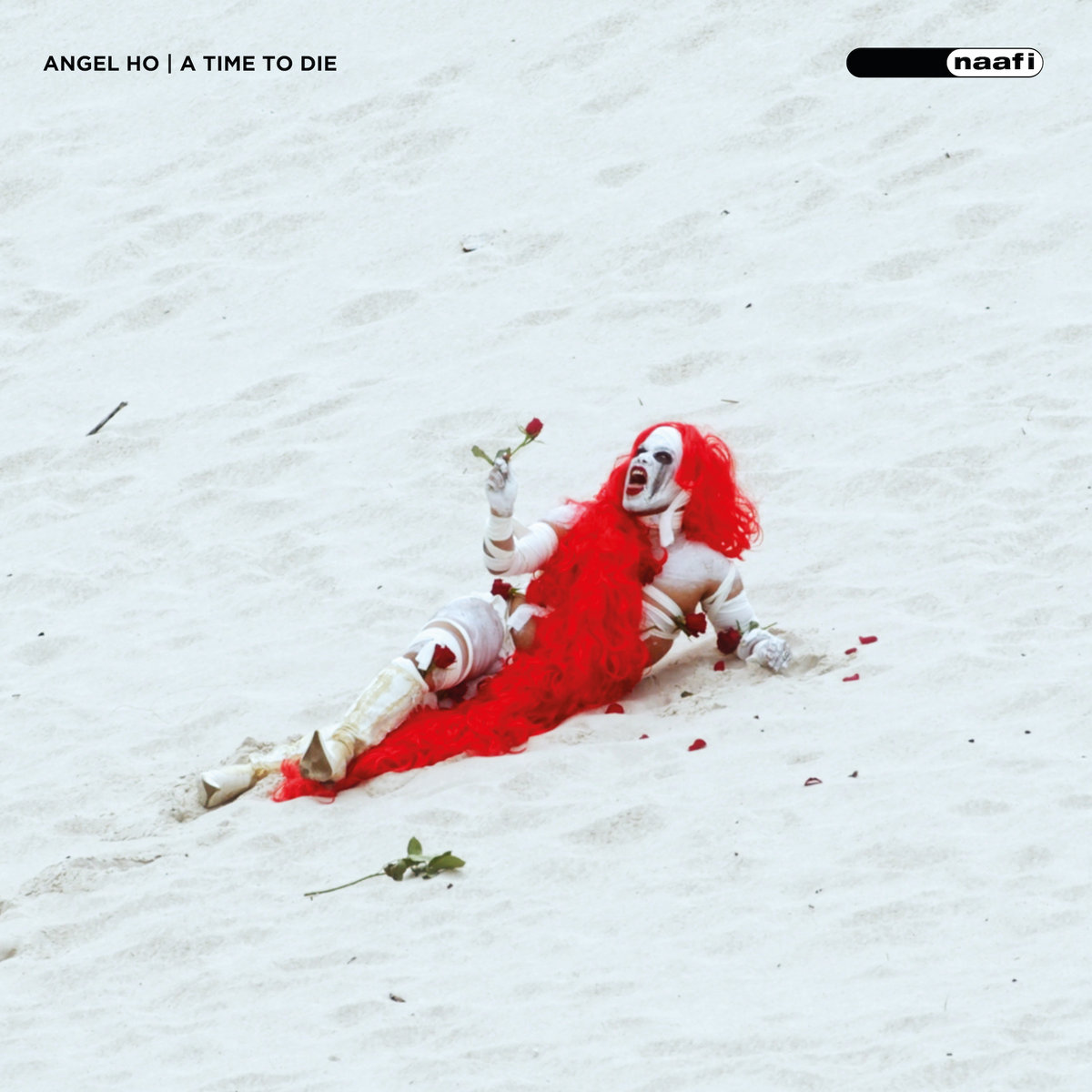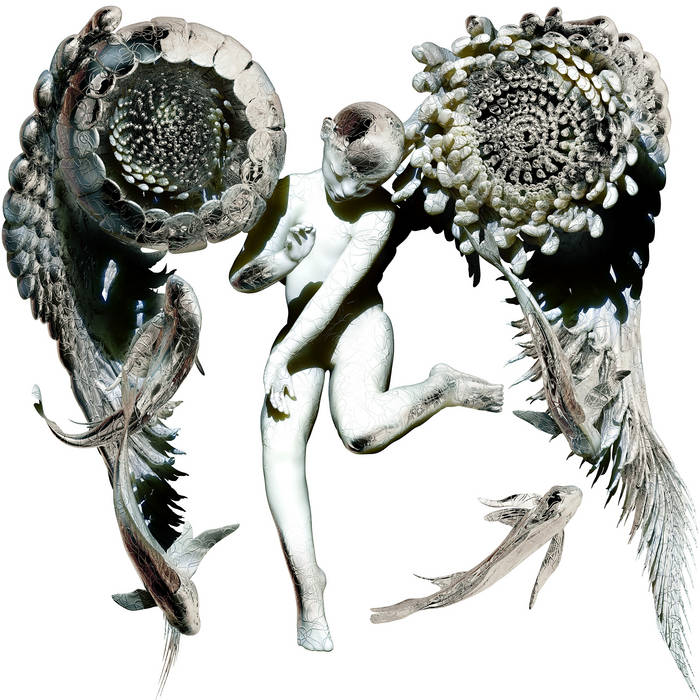Angel-Ho finds her freedom on the dancefloor on the new album, ‘A Time To Die’
Image by Travys Owen
Angel-Ho has always had something to say, and knows damn well how to say it. She has always understood that in order to be heard as a body perceived by way of its brownness, queerness, transness; you must be loud. It’s something that the South African performance artist, producer and songwriter has ardently embraced across her body of work, beginning at ASCENSION. That EP was as much a proclamation of identity as it was a boundary shattering debut, an investiture into the violence of the coloured queer lived experience. Full of industrial distortion and alarmingly scattered patterns of syncopated chaos, it’s unsurprising that ASCENSION was mastered by fellow transgressor Arca. Her debut album Death Becomes Her began the formulation of Angel-Ho the pop star, with the artist finding her voice in songwriting, singing and rapping. A Time to Die, her third album and first on Mexican label naafi, presents the most all encompassing incarnation of her pop persona yet, a summation of the many shapes and forms her sound has taken before this moment in its evolution. A Time To Die reconciles the abrasive, avant-garde sound art of ASCENSION and Red Devil with the more straightforward pop experiments of Woman Call on a record that feels like a pivotal point in the actualisation of her artistry. Significantly, this album marks Angel’s most prominent return to production since her early work. In a sense, she has mastered the art of noise and A Time To Die stands as an introduction to this new phase of being.
The album dances through a number of influences from old-school disco, footwork and R&B to ultra-futuristic hyperpop, but never quite settles on any one form. Rather, A Time To Die borrows from the motifs and sounds of these styles, reformulating and at times completely subverting them altogether. Tonight opens the album with a stuttering, mutant trap beat and vocoded rapping before swerving into the decayed bounce of About My Boo, where 8-bit leaning arcade sounds and tweaked out horns blare over faintly cumbian drum rolls. Elsewhere, tracks like Express Your Way and Got Me Going take classic disco melodies and progressions and throw them into a sonic blender that churns out demonic dancefloor distillations. The dancefloor is primarily the space A Time To Die finds itself occupied with. Tracks like the devastatingly powerful Warrior interpolate the rhythms of ballroom by way of dubstep, and the sound is geared toward the imagining of a club focussed alternate present. Headshot is easily the album’s most triumphant moment, due mostly to Angel’s delivery of one of the most dynamic performances of her career. A twisting house formulation that turns dog barks into a vogue beat with sharp, decaying crashes, it’s the strongest synthesis of pop convention with the sort of manically queer noise that Angel-Ho has made her medium. She’s at her fiercest spitting lines like “now pose for the dolls!” and “it’s over!” making Headshot an experience impossible to sit still through, albeit completely unhinged. In fact, A Time To Die is strongest at its most unhinged. It’s through the abstract that Angel is most coherent and perhaps most in control. She understands the power of sound to conjure feeling, and paints these sonic pastiches with a palette of textures borrowed from the emotive peaks of her influences.
The abstraction of A Time To Die is tantamount to the way Angel treats the conventions of pop music as performance, and in many ways her music warrants consideration as performance art. In the code of the ‘pop star’ enigma, Angel has found a mode of eternalising her otherness, using the performance of pop stardom as a means for socio-cultural subversion. On Got Me Going, she lives a fantasy made in the image of stars like Lady Gaga and Diana Ross when she commands “make it rain glitter and euros,” manifesting the glamorous, utopian idealism of that world into her own as an affirmation of othered and trans identity. This makes for music which both embraces but also deconstructs the conventions of popular forms, as if teasing apart the capillaries of disco, house and techno to pinpoint and extrapolate upon its queer DNA. There is an innate understanding of the origins of the forms she looks towards, a reclamation of dance music and pop symbolism back to its Black, queer progenitors. The Chicago house thump of Liberation is testament to this, with Angel’s defiant call of “it’s a trans liberation,” summating the thesis statement of her oeuvre.
As always, her lyrics are jarringly honest. There’s a refreshing sense to her curtness, a writer unafraid to say it as she sees it and who refuses to dress their words in the palatable finery of eurocentric decency. A Time To Die, thematically, reflects on the present moment. It keys in on the effect of lockdown on the queer body (that is for Angel the performing body) but also its effect on mental health. This finds her dreaming of the nightclub and the power she holds over spaces of queer liberation and socio-cultural rebellion in a time where access to such spaces is difficult. The ensuing catharsis of energy is palpable, essential to the construct of A Time To Die’s dystopian gaggery. But while the album sparkles and sledgehammers, a quiet sense of longing is always thrumming beneath. On Dancing on Air, she longs for freedom, “I can fly, I’m like a bird, ascending through the third,” and perhaps A Time To Die is her attempt at achieving this when all else has failed. The most encapsulating aspect of Angel’s work has always been her unbridled freedom, a liberation of her identity and creative spirit that imbues her work with a sense of defiance and unparalleled resilience. She is unafraid to speak her mind, and at times just scream it, but it’s this unapologetic approach that has made it impossible to look away. A Time To Die is not perfect, but perfection is far from Angel’s modus-operandi. She demands to be seen. “I’m stunning like a sculpture, Michelangelo,” she states, at once ripping through the conventions of normativeness and commanding visibility with a formidable ferocity that elevates her image to high art.
Listen to Headshot from A Time To Die below.
Follow Angel-Ho
Facebook | Instagram | Twitter | SoundCloud | YouTube



